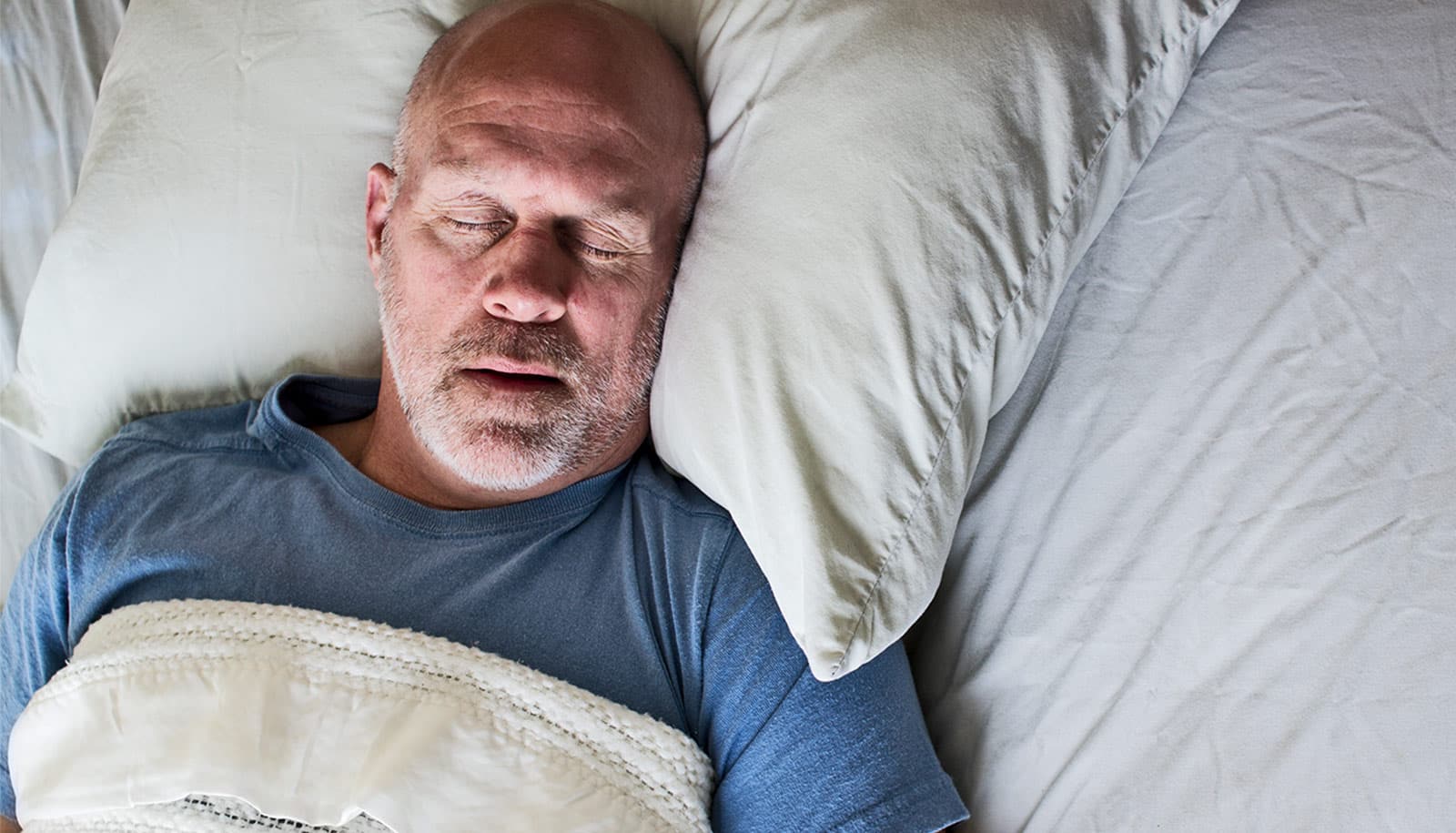Untreated sleep apnea can increase blood sugar, blood fat, stress hormones, and blood pressure in just a few days, new research finds.
The study, published in the Journal of Clinical Endocrinology & Metabolism, adds further support for the consistent use of continuous positive airway pressure (CPAP), a machine that increases air pressure in the throat to keep the airway open while a patient sleeps.
“This is one of the first studies to show real-time effects of sleep apnea on metabolism during the night,” says Jonathan Jun, assistant professor of medicine at the Johns Hopkins University School of Medicine and the paper’s senior author.
Obstructive sleep apnea affects 20 to 30 percent of adults, previous studies showed. It occurs when the upper airway closes off during sleep, temporarily interrupting breathing. OSA is associated with risks for diabetes and heart disease, but there has been no consensus on whether it causes those disorders or is just a marker of obesity, which predisposes a person to diabetes and heart disease.
Previous metabolic studies in patients with OSA usually collected data while participants were awake, thus obtaining only a snapshot of OSA’s aftermath, not the actual sleep period when OSA occurs, say the authors of the new study.
To better understand how OSA affects metabolism, Jun’s team measured free fatty acids in the blood, glucose, insulin, and the stress hormone cortisol while participants slept in a laboratory at the Johns Hopkins Bayview Medical Center. The researchers recorded participants’ brain waves, blood oxygen levels, heart rates, and breathing, along with eye and leg movements.
In total, Jun and colleagues drew blood samples for two nights each from 31 patients with moderate to severe OSA and a history of regular CPAP use. They took samples every 20 minutes from 9 pm until 6:40 am. Every participant spent one night at the lab with continuous positive airway pressure and one after CPAP use had stopped for two nights. The nights were in random order, separated by one to four weeks.
Jun and colleagues found that CPAP withdrawal caused recurrence of OSA, with sleep disruption, elevated heart rate, and reduced blood oxygen. CPAP withdrawal also increased free fatty acids, glucose, cortisol, and blood pressure during sleep. The more severe the OSA, the higher those readings increased.
Glucose levels increased the most in patients with diabetes. Increases in fatty acids, glucose, and cortisol have all been linked to diabetes. The team also found that blood pressure increased and the arteries showed signs of stiffness in the morning without CPAP. Over time, increased blood pressure and vascular stiffness can contribute to cardiovascular disease.
Big tongue and tonsils raise risk of sleep apnea
Jun points out that the team studied only people with severe OSA and obesity, thus limiting his ability to say the findings apply to a broader range of OSA patients. The researchers also did not use a control group to exclude a potential placebo effect. But Jun says that the study provides further evidence that sleep apnea isn’t just a manifestation of obesity, diabetes, and cardiovascular disease; it can directly aggravate these conditions.
Jun’s coauthors are from Johns Hopkins, the University of Arkansas for Medical Sciences, and Shanghai Jiao Tong University School of Medicine. Funding for the study came from the American Academy of Sleep Medicine Foundation, the National Institute of Diabetes and Digestive and Kidney Diseases, and the National Heart, Lung, and Blood Institute.
Source: John Hopkins University



